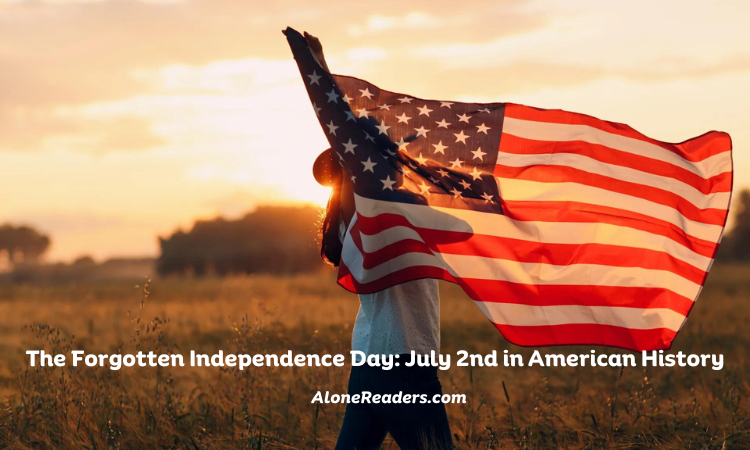
In the annals of American history, July 4th stands as an iconic date, celebrated with grandeur and fireworks to commemorate the nation's independence from British rule. However, what if we told you that the true day of declaration, the day when the United States of America officially claimed its independence, was actually July 2nd? It's a historical quirk that many Americans might not be aware of.
John Adams, one of the Founding Fathers, penned a letter to his wife Abigail on July 3, 1776, expressing his belief that July 2nd would forever be remembered as the most significant day in American history. He envisioned it being celebrated with great pomp, parades, shows, games, sports, gunfire, bells, bonfires, and illuminations. Adams and his contemporaries were resolute in their conviction that July 2nd marked the birth of their fledgling nation.
So, why do Americans celebrate their independence on July 4th instead?
To understand this, we need to rewind to June of 1776 when the Second Continental Congress took a pivotal step by appointing a Committee of Five. This committee consisted of notable figures like Thomas Jefferson, Benjamin Franklin, Robert Livingston, and Roger Sherman, with Thomas Jefferson as the primary author. Their mission was to draft a declaration of independence that would liberate the American colonies from British rule. At the time, only nine out of the thirteen colonies were in favor of independence.
However, as debates raged on, the delegates gradually reached a consensus. On July 2, 1776, Congress officially passed a resolution proclaiming the United States of America as a sovereign nation. This momentous event marked the true birth of the nation. The Declaration of Independence, which had undergone further revisions, was eventually completed, adopted, and sent for printing on July 4th. It was on August 2nd that the regular delegates began signing the engrossed copy of the declaration.
In the year following, 1777, the idea of celebrating the anniversary of independence began to gain traction. However, by that time, it was too late to honor July 2nd. Instead, on July 4th, two significant events took place - fireworks illuminated the skies over Boston, accompanied by a military display, and Philadelphia witnessed its own spectacular fireworks. These celebrations marked the beginning of an annual tradition that, as John Adams had predicted, would become "the most memorable Epocha, in the History of America."
In conclusion, while July 4th has rightfully earned its place as Independence Day in the hearts of Americans, it's important to remember the significance of July 2nd as the day when the United States of America formally declared its independence. This historical tidbit sheds light on the complexities of history and the journey towards nationhood.